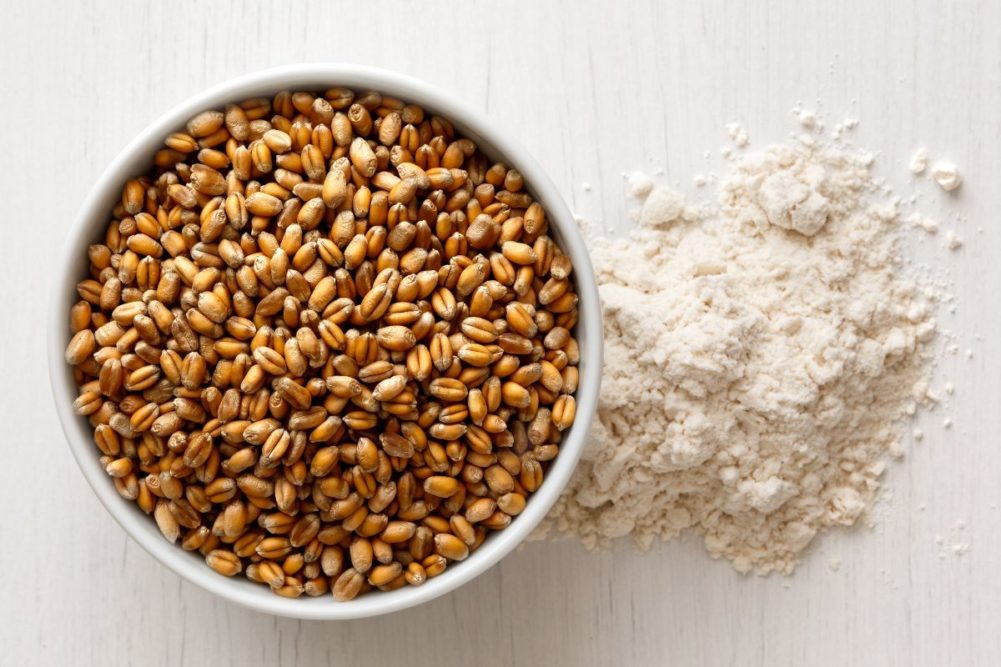SÃO PAULO, BRAZIL — As a region that traditionally has relied on large amounts of imports to meet its wheat processing demands, Latin America has been profoundly impacted by the recent spike in food prices, pressure on supply chains and shifting trade patterns, Eduardo Pimentel, principal scientist at IFF, told World Grain during a recent interview.
Exacerbating the problem is the worst drought in 60 years in Argentina, South America’s largest wheat producer and exporter, which is projected to produce only 12.9 million tonnes of wheat in the 2022-23 marketing year, down from 22.1 million last year, and export 6.5 million tonnes, a little more than one-third of the 2021-22 total.
Pimentel said this year the typical quantities of higher-protein wheat from the global market have not been available, leading to more reliance on locally grown wheat that is relatively low in protein.
“The protein level is really low compared to recent years,” Pimentel said. “We are talking about protein levels of 9% to 9.5% when some countries in Latin America are usually working with 11% to 12% protein wheat.”
Efforts to increase wheat production in several Latin American countries besides Argentina has paid off, he said, particularly in Mexico, which has seen output increase the last five years, and Brazil, which is projected to harvest a record 10.4 million tonnes in the 2022-23 marketing year, according to the Foreign Agricultural Service of the US Department of Agriculture.
However, Pimentel noted that the varieties grown in these countries do not fully meet the requirements of the milling sector.
“Due to the climate and soil profiles of Mexico and Brazil, for example, the cereal ultimately has lower protein content,” he said. “This leads to difficulties in processing and tends to compromise the yield in flours.”
At the International Association of Operative Millers Association (IAOM) Latin American District meeting in March, Pimentel gave a presentation outlining the challenge millers and bakers in that region are facing and solutions that IFF is offering to upgrade flour quality.
Pimentel, who spent the first 12 years of his career as a flour miller, said that experience helped him understand the importance wheat characteristics play in producing quality flour that enables bakers to make top-grade products for the customers.
Part of what IFF does, he said, is obtain information on crop quality from the world’s major wheat producing countries each year that enables the company to anticipate what flour improvement solutions will need to be applied for a given batch of milled wheat.
Since joining the company in 2003, Pimentel has focused primarily on developing enzymes and other solutions that improve flour quality.
“Almost 100% of my time right now is focused on oxidization,” he said. “It is key for the bakery side.”
He said oxidative enzymes offer the proper synergy to meet the daily challenges of the milling industry regarding flour standardization and reinforcement. He said IFF products such as Grindamyl, PowerBake and SureBake improve gas retention, strengthen the gluten network and increase bread volume.
“Synergy between PowerBake and SureBake enzyme ranges ensures successful baking results, removing ADA and ascorbic acid from their formulations, besides contributing to a cleaner label or formula,” Pimentel said.
He said IFF customers in Latin America also are demanding products that can stay fresher for longer while avoiding undesirable ingredients in the formulation for a possible label-friendly positioning.
“The industrial bakers are asking for a lot of support in terms of improving bread freshness,” he said. “What we’re doing is developing solutions that can keep a product fresher for 60 days. This opens opportunities for companies to expand into new geographic areas, working with a different distribution model as well as avoiding waste due to produce return.”
The challenge regarding label friendly, Pimentel said, is that it’s still a somewhat subjective term given that there is no global agreement of its definition. Label friendly generally resonates with consumers as products that do not contain artificial ingredients, are naturally processed and have a shorter list of ingredients.
“It is still kind of subjective, and the meaning may be different from country to country, customer to customer,” he said. “We don’t have a standard concept. But label friendly bread is becoming important in (Latin America).”
IFF’s Grindsted PowerBake Clean is a blend of soy lecithin, enzymes and natural soluble fiber that serves as an alternative to the dough strengtheners currently used in bread formulations, making it possible to avoid the use of oxidizing agents.
Pimentel said with a deep knowledge of the global wheat market and the right technologies, it is possible to produce flour with consistent quality and ideal yield, regardless of the origin and quality of the harvest.
“Through strong partnerships, we can achieve success by making the most of the raw materials that are within reach,” he said. “This provides security and confidence to all mills, the food industry and consumers who continue to enjoy products with the quality and sensory attributes they value so much.”





